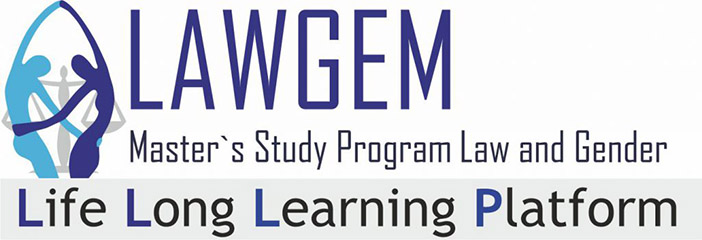Faculty of Law University of Belgrade in the cooperation with the OSCE Mission to Serbia organized the Spring School/Pilot Master – Law and Gender. This Spring School was based on the project LAWGEM and served as a kind of the pilot practicing of the future master`s study program Law and Gender. It covered all courses contained in this master`s study program curriculum, and the reading materials consisted to a great extent of the books published within the LAWGEM project. The School was organized in a hybrid form – in person at the Faculty of Law University of Belgrade and online, with 69 participants (students of undergraduate, master and PhD level), both from Serbia and other countries around the world (Albania, Belarus, Bosnia and Herzegovina, Brazil, China, Croatia, France, Germany, India, Iran, Italy, Montenegro, Russia and Vietnam). It is certain that participants of this School have gained valuable knowledge which will help them on their academic path and in their professional careers. On the other hand, the Spring School represented an excellent preparation of lectures and pedagogic experiences of the scholars from the University of Belgrade Faculty of Law for the future conducting the master’s study program Law and Gender.
Full Professors Dr. Ivana Krstić and Dr. Tanasije Marinković presented the course of Feminist Judgments that consisted of three lectures. The first lecture named “What is Legal Reasoning and Legal Writing, Gender Bias in the Court” was held by Professor Dr. Krstić. She explained what legal reasoning and legal writing in the court’s decisions is, and reflected on how attitudes can influence decisions. She explained that stereotypes are fixed, generalized beliefs about a particular group or class of people, while prejudices are unfair feelings of dislike for a person or a group because of their personal characteristics. Also, Professor Dr. Krstić explained that the act of making unjustified distinctions between human beings based on their personal characteristic can lead to discrimination. She showed studies and cases before CEDAW Committee and ECtHR where judges based their decisions on different gender stereotypes. Professor Dr. Krstić explained that gender stereotypes undermine access to justice and lead to impunity. It refrains victims from seeking protection, influences judges’ views about witness credibility, and understanding of violent offenses, and compromises the impartiality of judges’ decisions. Professor also gave one case study to participants to discuss the example of indirect discrimination and strategies for eliminating stereotyping in judgments.
During the second lecture of this course, Professor Dr. Marinković represented the Feminist Judgment project and the case of banning burkas in France before the ECtHR. Professor explained that the interplay of culture, religion, and gender and perception of gender roles influence Court decisions. After that, the Professor showed case practice before the ECtHR related to the freedom of religion, after which students had a case study. During the case study, participants were involved in a fruitful discussion and presented arguments for both parties in cases of banning burkas in France.
In the last part of this course, Professor Dr. Krstić introduced feminist judgments projects saying that has begun in the USA, where two books were published with leading feminist scholars who have been invited to rewrite judgment in cases Brown v. Board of Education and Roe v. Wade. After that, feminist projects started in Canada, the UK, and other countries worldwide. Professor mentioned the book Feminist Judgments in International Law, written by Loveday Hodson and Troy Lavers. She said that this book contains judgments of the Permanent Court of International Justice, the International Court of Justice, and the Court of Justice of the EU, as well as judgments of the European Court of Human Rights and international courts and hybrid tribunals: International Criminal Court, International Criminal Tribunal for the former Yugoslavia and Special Court of Sierra Leone. It also contains a rewriting of a decision of the Committee on the Elimination of all Forms of Discrimination against Women, which is especially interesting. Professor stressed that the importance of gender-sensitive judging lies in acknowledging and engaging from a gender perspective, assessment of credibility, etc. In the end, the Professor noted that the feminist approach is necessary for many reasons such as proper application of the law, interpretation, and commentary for the revision of the law, effective criminal sanctions and civil remedies, and many others.
Feminist Judgements 1: What is Legal Reasoning and Legal Writing, Gender Bias in Court Decisions
Feminist Judgements 2: Judicial Culture and Gender-Balanced Case Law
Feminist Judgements 3: Re-writing Court Decisions: Feminist Judgements Projects around the World

